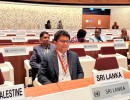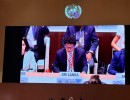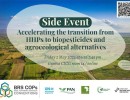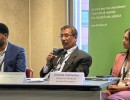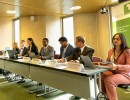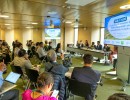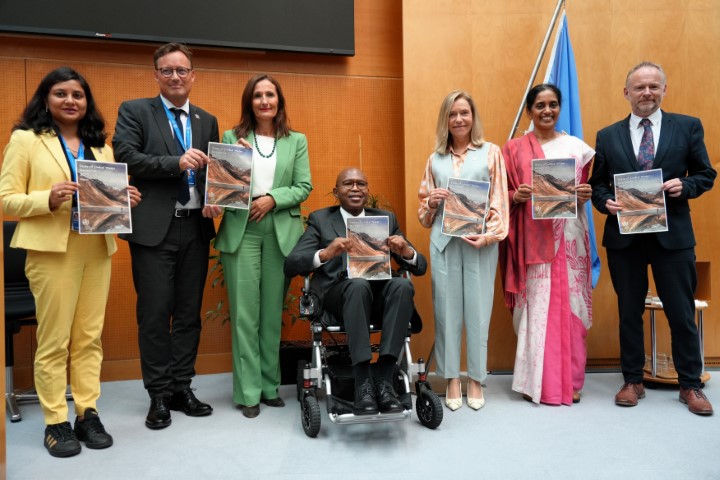Minister of Environment, Hon. Dr. Dammika Patabendi interacted at the Informal Ministerial Roundtable on 'challenges at national level to address plastic pollution' on 12 August 2025, held during the second part of the fifth session of the Intergovernmental Negotiating Committee on Plastic Pollution (INC 5.2) which is being held from 05-14 August 2025 in Geneva, Switzerland.
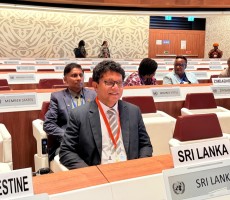
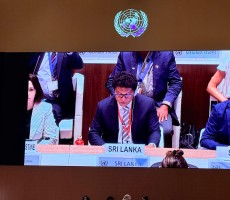
Distinguished Co-Chairs, Excellencies, Ladies and Gentlemen,
Sri Lanka extends its sincere appreciation to the Government of Switzerland for hosting this important meeting, and to the INC Secretariat for their tireless efforts and continued dedication towards the development of an international legally binding instrument on plastic pollution, including in the marine environment.
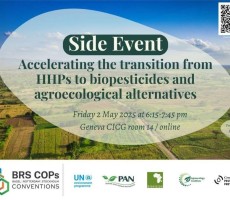
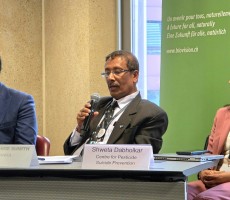
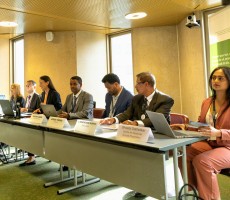
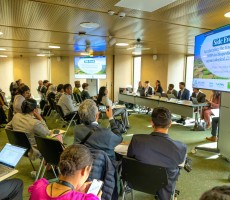
Sri Lanka’s participation at the hybrid side-event titled "Accelerating the transition from HHPs to biopesticides and agroecological alternatives" - 2 May 2025 held during the Meetings of the Conferences of the Parties to the Basel, Rotterdam and Stockholm Conventions in 2025 was led by Secretary to the Ministry of Environment Mr. K.R. Uduwawala and included officials from the Ministry of Environment, Department of Agriculture and Central Environmental Authority.
Photo Credit: BRS Convention/Kiara Worth
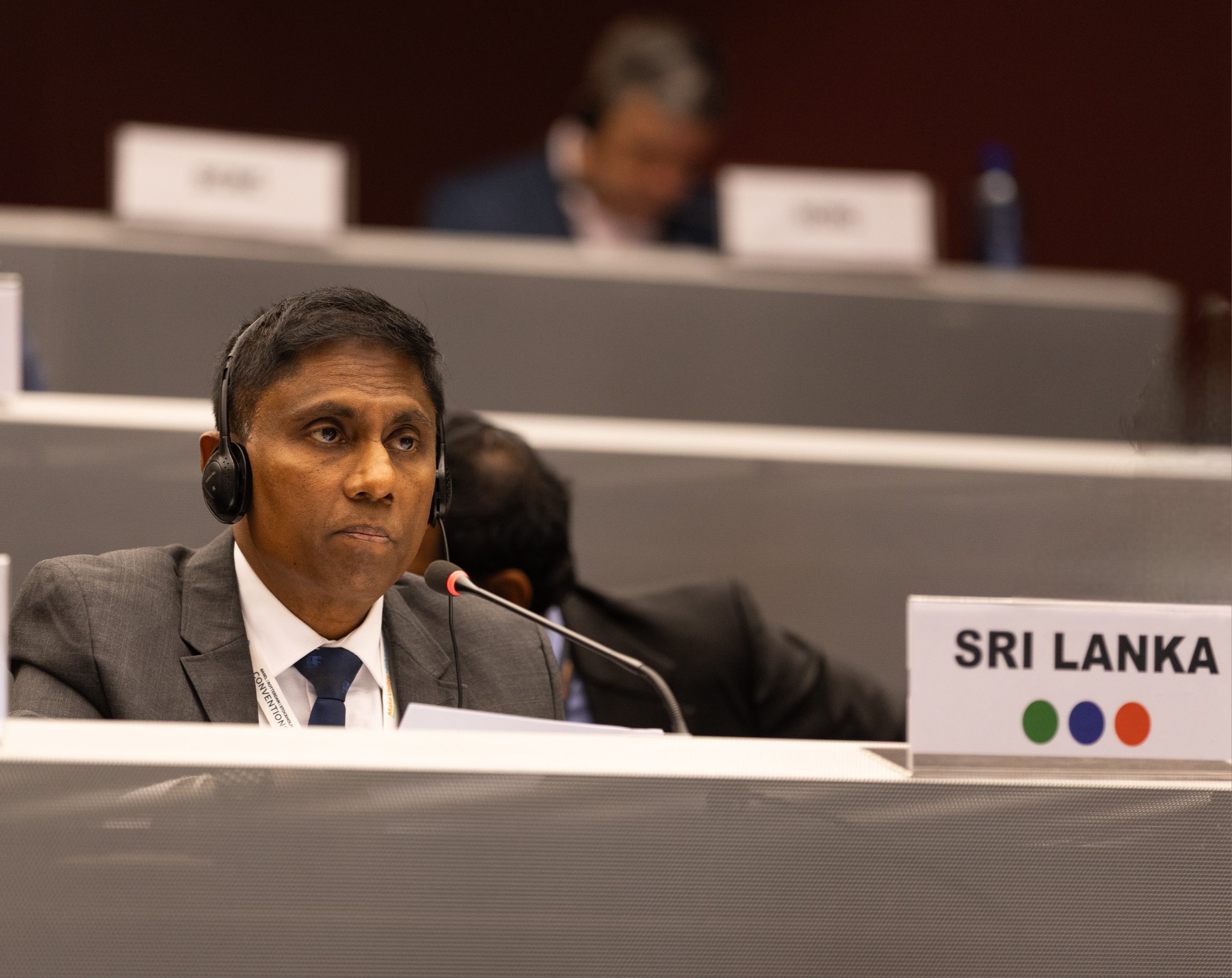
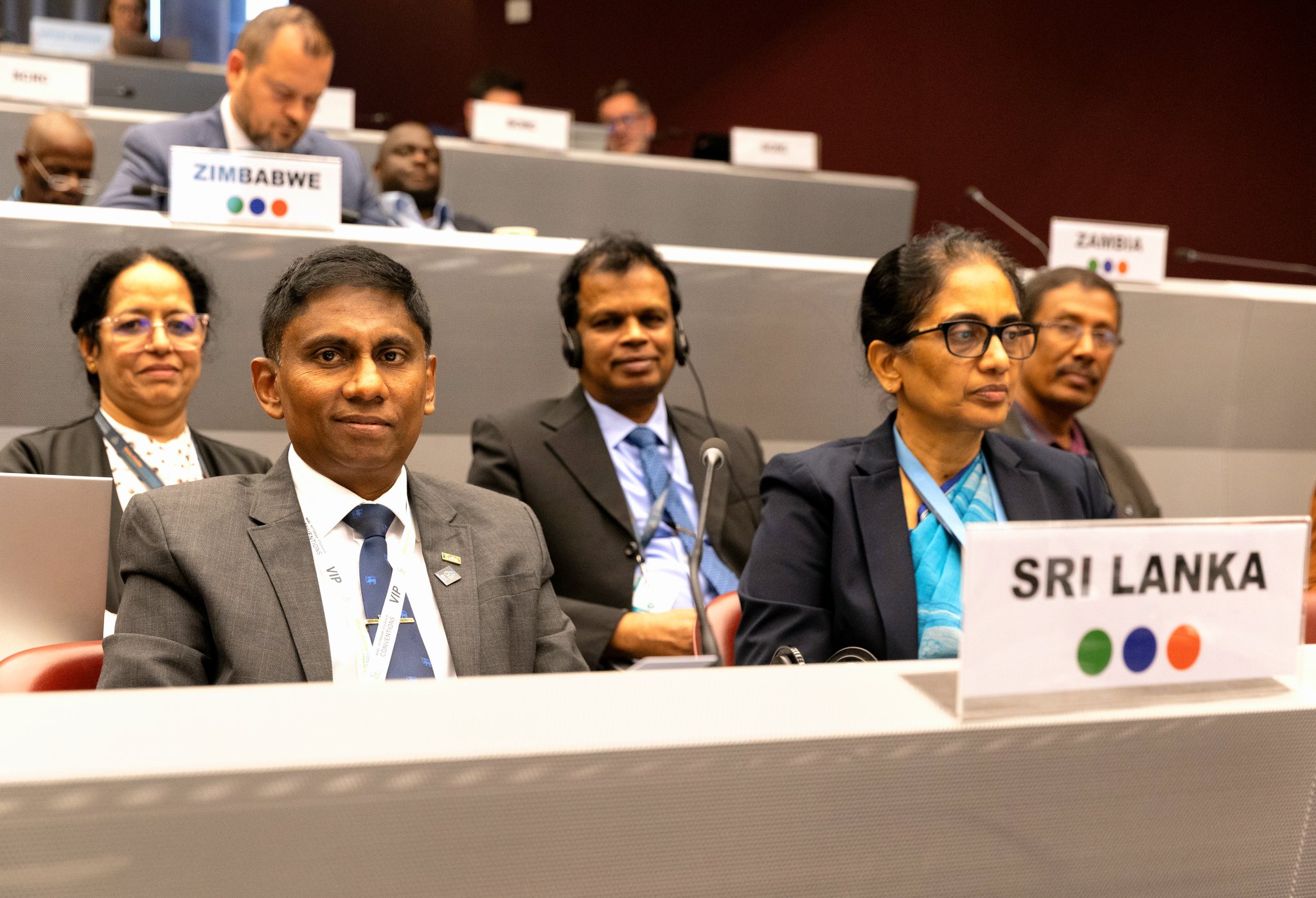
Honorable President, Excellencies, Distinguished Delegates,
Sri Lanka reaffirms its strong commitment to the Basel, Rotterdam, and Stockholm Conventions, recognizing their vital role in supporting our development, addressing climate change under the Paris Agreement, and conserving biodiversity. These Conventions are well integrated into our national policies and action plans, ensuring environmentally sound management of hazardous chemicals and waste.
Tsunami: Sea Change for Resilience
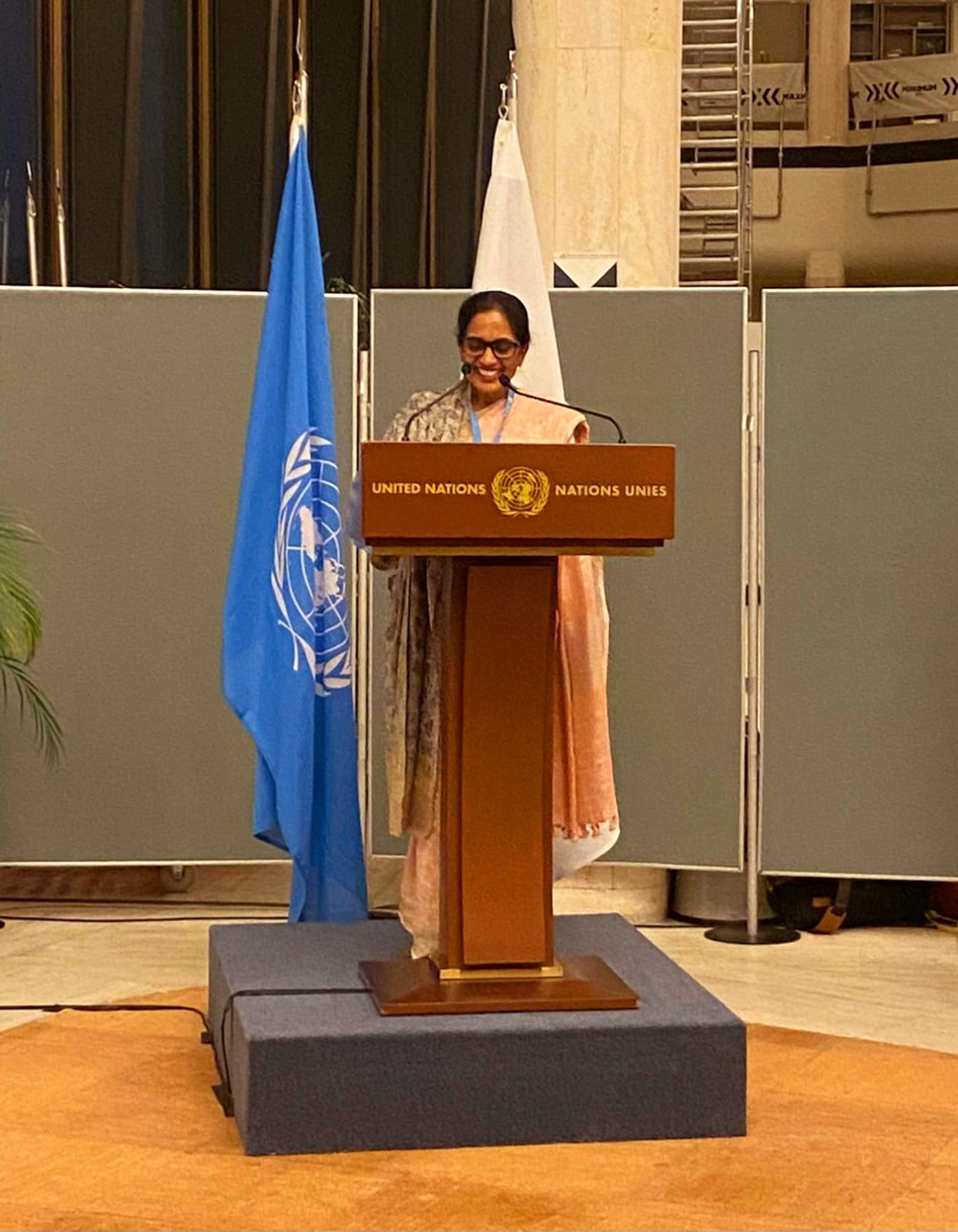
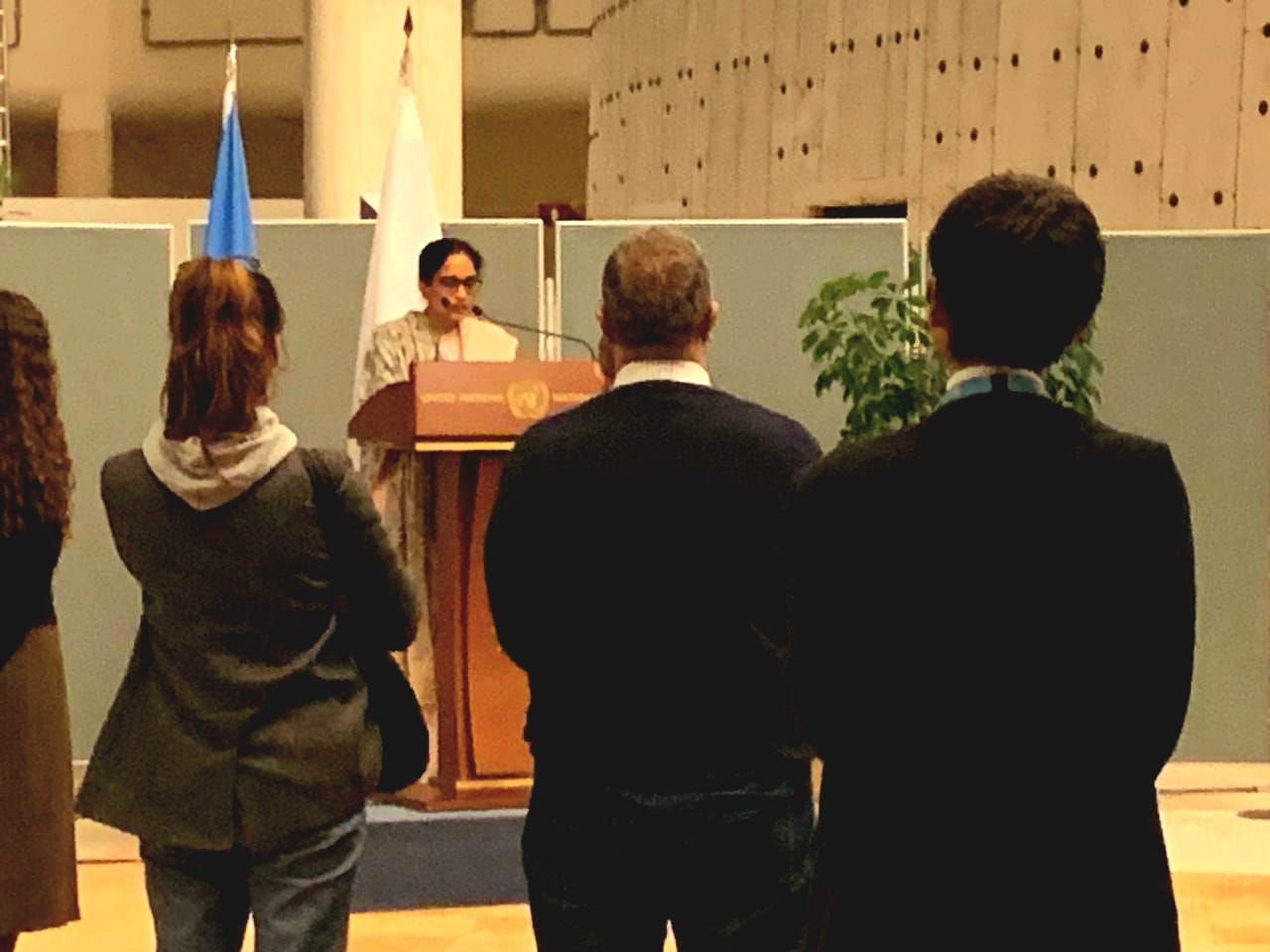
Special Representative of the Secretary General for Disaster Risk Reduction Mr Kamal Kishore,
Ambassador Oike Atsuyuki, Permanent Representatives of Japan
Ms. Ana Luiza Massot Thompson Flores, Director, UNESCO Liaison Office in Geneva
Ms. Hanna Entwisle Chapuisat, Curator of the exhibition,
Ladies and gentlemen,
I thank the organizers, the UN Office for Disaster Risk Reduction, the Intergovernmental Oceanographic Commission of UNESCO, and the Permanent Mission of Japan, for inviting me to speak on this occasion.
26th December this year marks 20 years since the deadly Indian Ocean tsunami that killed over 230,000 people across 14 countries including my own, Sri Lanka. The tsunami that struck on Boxing Day, is reportedly one of the deadliest natural disasters in recent human history.
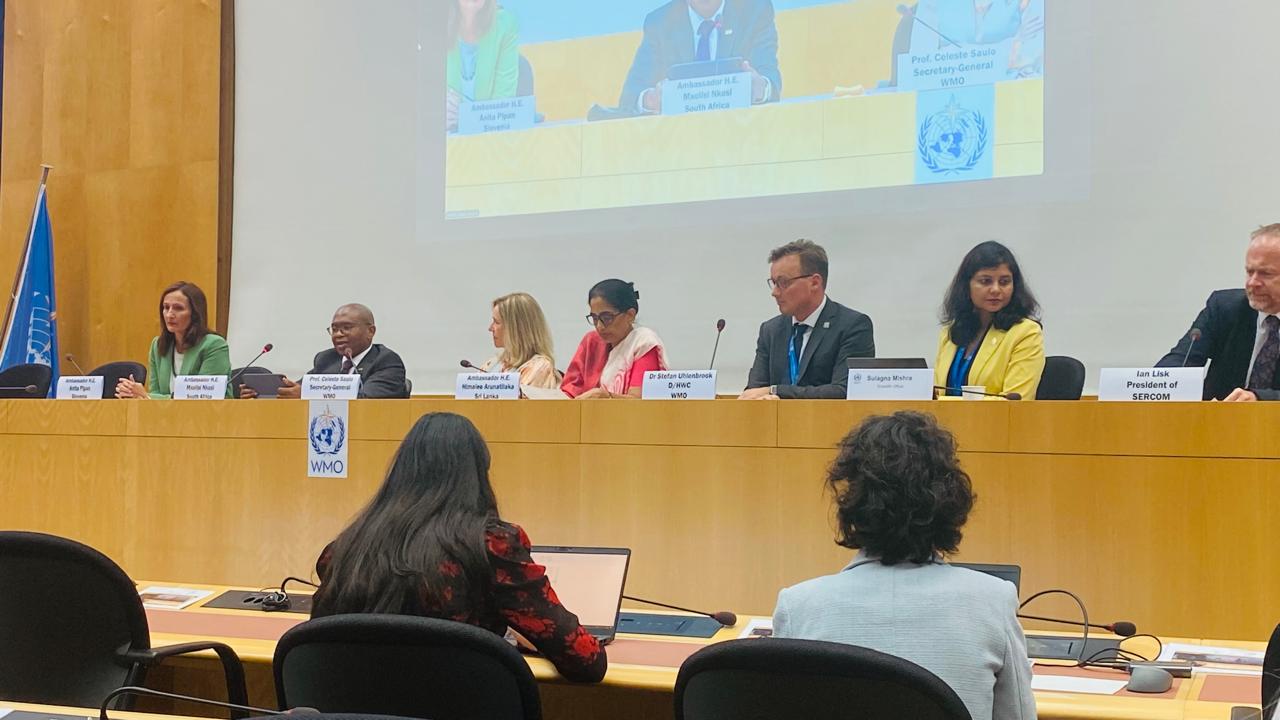
Secretary General Prof Celeste Saulo,
Dr Stefan Uhlenbrook
Excellencies, Friends,
I’m deeply honoured to have been invited to speak at the launch of WMO’s State of Global Water Resources Report 2023. I would like to start by congratulating the WMO team for the hard work that must have gone into producing this Report.
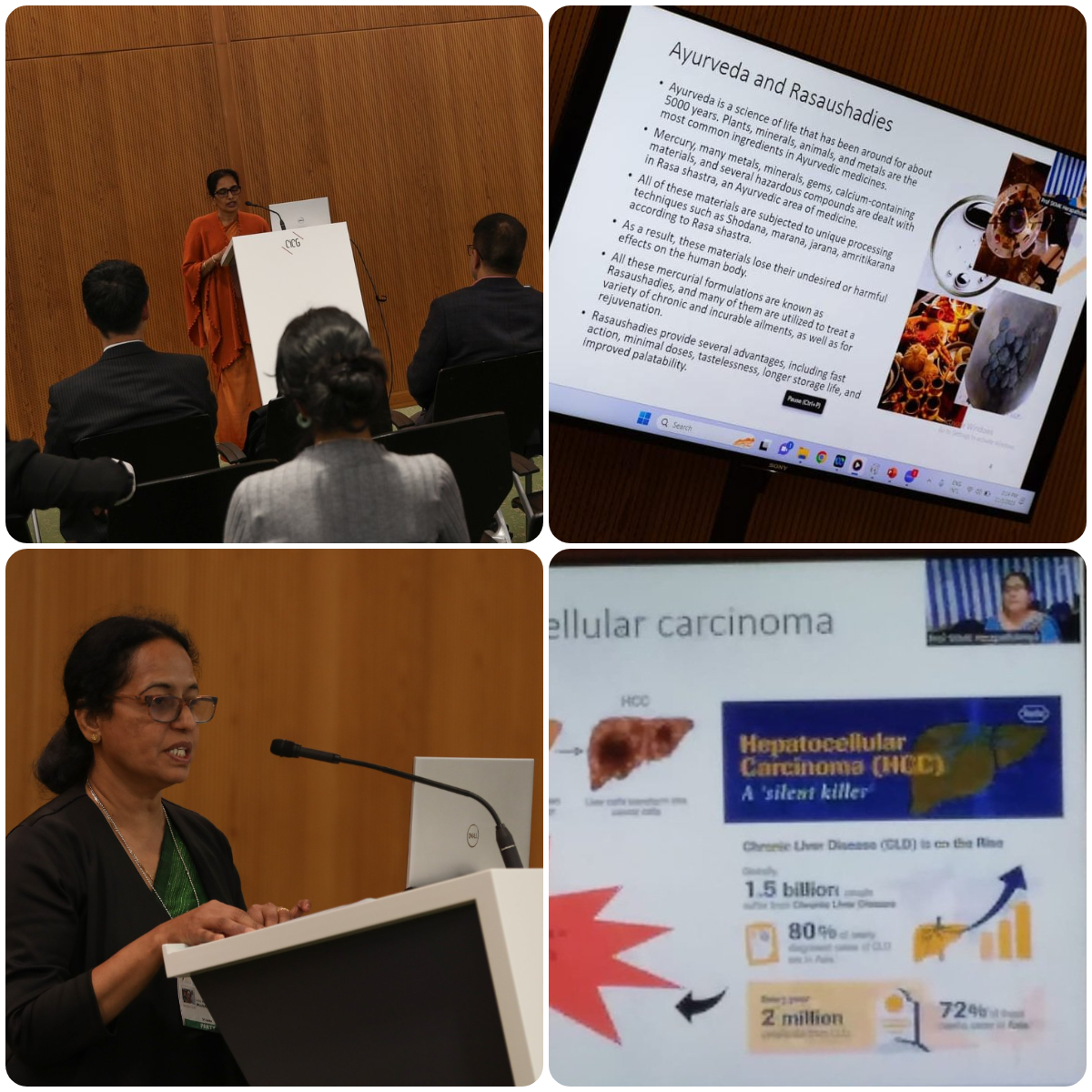
Ministry of Environment organized side event on 'Hepatoprotective activity of Mercury containing Lokanatharasa with special reference to Hepatocellular carcinoma' was held during the Fifth meeting of the Conference of the Parties to the Minamata Convention on Mercury (COP-5) on 2 Nov 2023 in Geneva. Prof. Sujeewa Harapathdeniya of Institute of Indigenous Medicine joining virtually made a presentation based on research conducted in SriLanka with United Nations Industrial Development Organization (UNIDO) and Swiss government assistance.
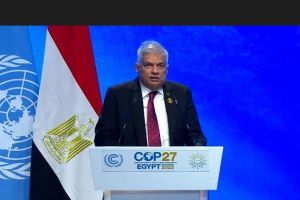
President Ranil Wickremesinghe addressing the COP 27 Climate Change Conference in Sharm El-Sheikh, Egypt said that unbridled industrialization of the developed countries is the root cause of climate change, leaving the poor to suffer the consequences. He said that the problems facing poor countries are augmented due to the absence of adequate funding.
As a result, these countries are facing double jeopardy – struggling to develop economically while fighting to protect the living standards of their populations.
Therefore, President Wickremesinghe said that the developed countries must deliver on their pledge in Glasgow – by doubling their funding to compensate the developing countries for loss and damage.



